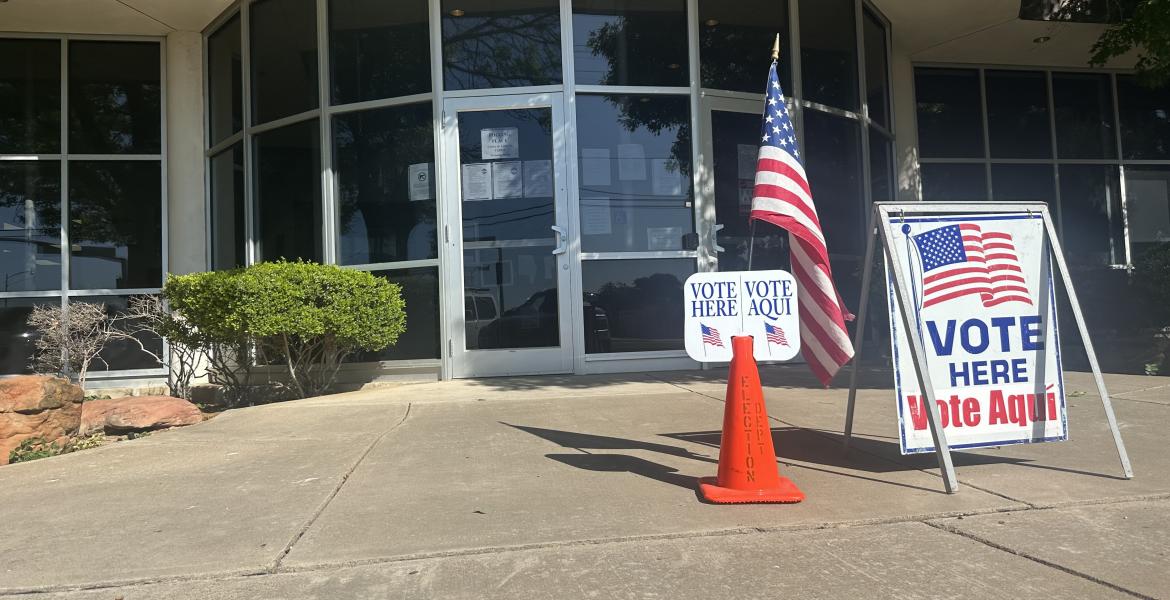A detoxification center is planned to be built in Tom Green County quite soon. The commissioners’ court agreed to lease 4.5 acres of county property on N. Highway 277 to the Alcohol and Drug Abuse Council for the Concho Valley (ADACCV, commonly pronounced "A-Dack").
ADACCV provides treatment for indigent adults and private individuals suffering from addiction. ADACCV currently offers rehab and aftercare on an outpatient basis for those dealing with addiction, but lacks a needed inpatient detox program. Therefore, ADACCV plans to build a detox center on the land provided by the county.
According to Sanchez, the closest full service, inpatient detox facility for those without insurance or the money to pay for the treatment is in Lubbock or Odessa.
“We have to scramble to go to Odessa or Lubbock or anywhere in the state where there’s a bed available,” ADACCV CEO Eric Sanchez said. “That’s really a shame for a community of our size and a community like ours that answers the call to address any problems that we have.”
The organization currently has raised $3.9 million for the construction of the center and is on pace to reach the $5 million goal. ADACCV is also attempting to raise an additional $1 million for an endowment fund. According to Commissioner Aubrey DeCordova, the lease the court agreed on provides ADACCV with county-owned land for 99 years for $1 a year.
“We have about 200 acres out there, so this is a pretty small footprint,” County Judge Steve Floyd said.
Floyd also said that a main reason to lease the land is to give the county options. Instead of having to jail intoxicated drug or alcohol addicts, or send them to the hospital, this facility will provide a place for addicts to receive treatment.
“Our goal is to reduce recidivism in the jail so you don’t see the same folks over and over and they become apart of our community as healthy citizens.” Sanchez said. Supporters of financing and building the center believe that the facility will reduce the county's liability and expense of detoxing incoming prisoners. A detox incident may force the county to pay for a hospital room for the inmate, or detox the inmate at the jail under close medical supervision. Detoxing, even from just alcohol, is often a life-threatening event.
Sanchez said that ADACCV originally planned to build behind their offices on Houston Harte; however, child safety zoning laws in that area would potentially limit individuals ADACCV could admit into their safety programs. The facility was too close to the TLC school for overnight inpatient care. The county's offer to use their land near the Roy K. Robb Corrections Facility in the northeast sector of the county eliminates that conflict.
ADACCV began “the long process” of coming to an agreement on a location on February. Sanchez hopes to begin building next year.
“We’re over 150,000 population in Tom Green County and we don’t have [an] indigent detox center,” Sanchez said. “Addiction is a disease and by making this a reality we’re doing something about it, together. It’s a wonderful partnership, we appreciate the opportunity, we appreciate the partnership that is so crucial for not just San Angelo but Tom Green County and the Concho Valley as well.”
Sanchez said that most of the clients that ADACCV receives on an annual basis are from Tom Green County and the next biggest portion is from the rest of the Concho Valley. Luckily, according to Sanchez, the land leased to ADACCV is “a perfect fit.”
“We look forward to the ground breaking,” Floyd told Sanchez. “Y’all have had long efforts trying to get there and you still got a little ways to go, but I’m confident y’all will get it done."
According to ADACCV's website, the detoxification facility will accommodate up to 12 inpatient clients at a time.
If you have a desire to donate money to the building of the detoxification center in San Angelo, click here.
Updated June 24 at 3:25 p.m.
The ADACCV added these details about the planned detox facility in a press release today.
A plan has been developed that will allow ADACCV to add crucial residential detoxification services for the indigent and will accommodate up to 12 clients. ADACCV will also consolidate its residential treatment services to one location and double its residential treatment capacity by providing 30 male treatment beds and 18 female treatment beds. The women’s program is one of few in the State of Texas to allow women to bring their children with them while they receive services.
The capital campaign goal is $5 million for building construction and furnishings and $1 million for the endowment fund. ADACCV has raised almost $4 million through foundation grant funds, private donations, fundraisers and pledges.
A comprehensive drug treatment program is comprised of three stages: 1. Detox, 2. Rehab and 3. Aftercare. Detox helps stabilize clients and allows them to safely and comfortably remove the toxins from their body. According to the Treatment Research Institute at the University of Pennsylvania, when detox services are available immediately for those in need, clients will be better engaged in rehabilitation and in the long run will be more successful in maintaining their recovery. Without detox, they are at higher risk of continuing in their addiction and will remain a burden on the local healthcare system, legal system and other community resources.
Subscribe to the LIVE! Daily
Required






Post a comment to this article here: